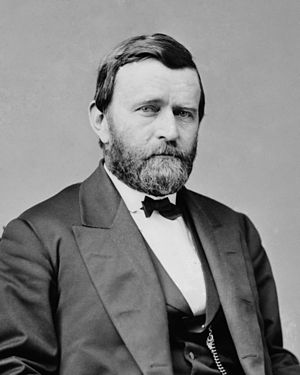
Word of the Day: Panegyric
Word of the Day: Panegyric
Today’s word of the day, courtesy of www.wordgenius.com, is panegyric. A panegyric, according to the website, is a public speech or published text in praise of someone or something. The website www.etymonline.com goes further: “’eulogy, laudation, praise bestowed upon some person, action, or character,’ c. 1600, from French panégyrique (1510s), from Latin panegyricus ‘public eulogy,’ originally an adjective, ‘for a public festival,’ from Greek panēgyrikos (logos) ‘(a speech) given in or addressed to a public assembly,’ from panēgyris ‘public assembly (especially in honor of a god),’ from pan– ‘all’ (see pan-) + agyris “place of assembly,” Aeolic form of agora.” So, in short, a speech given in front of the whole assembly in honor of someone or something.
It’s interesting that the etymonline definition begins with the word eulogy because we most often associate a eulogy with a funeral. But the definition of eulogy is “a speech or writing in praise of a person or thing, especially a set oration in honor of a deceased person; high praise or commendation” (www.dictionary.com). It comes “from Latin eulogium, from Greek eulogia ‘praise; good or fine language’ (in New Testament, ‘blessing’), from eu ‘well’ (see eu-) + -logia ‘speaking’” (www.etymonline.com). If you speak well of someone or something, then, you are delivering a eulogy.
On this date in 1871, Ulysses S. Grant order members of the Ku Klux Klan in South Carolina to lay down its arms and cease its activities.
After the Civil War, the Republican Party was in control of the USA and implemented a variety of acts to guarantee civil rights to the roughly 4 million newly freed slaves.
Sworn into office in 1869, Grant advocated the passage of the 15th Amendment, requiring that the nation as a whole and each individual state permit voting for every adult male, regardless of race or color. In 1869, Grant got the US Secret Service involved in infiltrating and prosecuting members of the KKK; the outfit had been created in 1865 to counter the growing problem of counterfeiting US currency. In 1870, Grant got Congress to pass a bill creating the Department of Justice. This DOJ prosecuted 1000 members of the Klan in 1870; by the end of 1871, it had prosecuted roughly 3,000 members, with 600 convictions, some of them requiring 5-year sentences.
In 1870, Grant also signed the Naturalization Act of 1870, to replace the Naturalization Act of 1790. That earlier bill set the first uniform rules for immigrants to become citizens of the United States, and it limited such citizenship to “’free white person[s] … of good character’, thus excluding Native Americans, indentured servants, slaves, free blacks and later Asians” (https://en.wikipedia.org/wiki/Naturalization_Act_of_1790). The 1870 bill granted the possibility of naturalization to “’aliens of African nativity and to persons of African descent’ while also revoking the citizenship of naturalized Chinese Americans,” though the revocation was offset by a Supreme Court ruling in United States v. Wong Kim Ark (1898) (https://en.wikipedia.org/wiki/Naturalization_Act_of_1870).
Despite the prosecutions by the DOJ, the Klan continued to threaten not only freed African-Americans but also others associated with the federal government. “Grant stated that the U.S. mail and the collection of revenue was in jeopardy. Congress investigated the Klan’s activities and eventually passed the Force Act of 1871 to allow prosecution of the Klan. This Act, also known as the ‘Ku Klux Klan Act’ and written by Representative Benjamin Butler, was passed by Congress to specifically go after local units of the Ku Klux Klan. Although sensitive to charges of establishing a military dictatorship, Grant signed the bill into law on April 20, 1871, after being convinced by Secretary of Treasury, George Boutwell, that federal protection was warranted, having cited documented atrocities against the Freedmen. This law allowed the president to suspend habeas corpus on ‘armed combinations’ and conspiracies by the Klan. The Act also empowered the president ‘to arrest and break up disguised night marauders’. The actions of the Klan were defined as high crimes and acts of rebellion against the United States” (https://en.wikipedia.org/wiki/Presidency_of_Ulysses_S._Grant#Force_Acts_of_1870_and_1871).
So on this date in that year, President Grant ordered the Ku Klux Klan to disperse, to lay down their arms, and to leave South Carolina. The Klan had gained power in South Carolina in large due to the incompetence and corruption of Robert K. Scott, the Republican governor of South Carolina from 1868 to 1872. Scott tripled the debt of South Carolina while in office, and during his term the South Carolina passed, and Scott signed, a bill giving itself a full-time bar and restaurant paid for by the taxpayers. Not surprisingly, Grant’s order received no reply, so on October 17, Grant sent federal troops into the Upstate of South Carolina, where the Klan activity was at its worst (particularly Spartanburg, Union, and York counties). “For example, in Spartansburg County between the election and July 1871, four people were killed and over 200 were beaten, whipped, wounded by gunfire, or had their ears cut off by Klan members” (https://law.jrank.org/pages/2611/South-Carolina-Ku-Klux-Klan-Trials-1871-72-South-Carolina-Klan.html).
The battle for the unrestricted enfranchisement of African-Americans in Southern states would continue for almost 100 years. But one thing is clear. In addition to fighting and winning the Civil War, Ulysses S. Grant fought for the right to vote, and the right to be a citizen, for African-Americans well beyond the end of that war. And it should be clear that, without President Grant’s efforts to make African-Americans, who were freed by the war, full citizens, the oft-praised leaders of the Civil Rights movement of the 1950s and 1960s would probably have gotten nowhere.
Maybe it’s time for a panegyric to Grant that is the equivalent of that to Lincoln.
The picture of President Ulysses S. Grant came from https://en.wikipedia.org/wiki/Presidency_of_Ulysses_S._Grant#/media/File:Ulysses_S_Grant_by_Brady_c1870-restored.jpg.